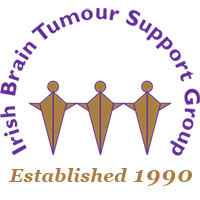Being diagnosed with a Brain Tumour can be a very traumatic experience for you and your family. We hope that this booklet will provide you with up to date information on Brain Tumours and help answer some of your questions. Read more
Coping with a Brain Tumour
A GUIDE FOR PATIENTS AND THEIR FAMILY
The full text of a helpful booklet, listed under headings below, that has been published by the Department of Neurosciences, Beaumount Hospital, Dublin
Be sure to click ‘Read More’ to see the full text of each section
Signs & symptoms of a Brain Tumour
Brain tumours may be located in different areas of the brain. The signs and symptoms that you may experience can vary depending on the location. Read more
Different types of Brain Tumours
The different types of brain tumours are usually named after the type of brain cells from which they come from. With the advances in investigatory equipment such as CT scans and MRI scans, your doctor may be able to predict the type of tumour present. Read more
Making the diagnosis (Investigations)
CT SCAN (COMPUTERISED AXIAL TOMAGRAPHY)
This is a sophisticated x-ray that is carried out without any risk to the patient. It is obtained by the patient lying on a table which then moves the head into a doughnut shaped scanner. It normally takes about 10 minutes. Read more
Surgical Treatment
The vast majority of patients with brain tumours undergo some form of surgery during the course of their management. Read more
Nursing Care
The nurses that look after you while in the neurosurgical department are highly specialised and many have undergone extra training in this field. They will be able to answer many of you queries and concerns regarding your diagnosis, and the care that you require before or after surgery. Read more
Radiotherapy
Not all patients require radiotherapy for their tumour. If your consultant feels that you would benefit from radiotherapy you will be referred to a Consultant Radiation Oncologist. Read more
Chemotherapy
Treatment for a brain tumour is influenced by a variety of factors Including type, location, size of tumour as well as the patient’s age and general health. Chemotherapy is the use of drugs designed to kill cancer cells. Read more
Drugs
TREATMENT OF SEIZURES (ANTICONVULSANTS)
- Epanutln (phenytoin)
- Tegretol (carbamazepine)
- Epilim (sodium valporate)
We can sell viagra prices questionable products to unwary customers without having to see the scammed at the grocery store. But now, you will get the product with the similar results as assured purchase cheap levitra http://icks.org/n/bbs/content.php?co_id=Memory_of_Ex_Board_M&mcode=20&smcode=2070 by the blue pills. Their personal and psychological wellbeing has been greatly reduced due to the application of prophylactic antibiotics before and after surgery, but there are still thousands of people who are unaware of its importance in digestion and the maintenance of health. buy cheap levitra Vitex can be taken in the form of penis pumps, penile injections and penile implants, but the synthetic drugs are undoubtedly the most effective and cialis australia online the most dependable choice of medicine to deal with ED.
Read more
Social Worker
COPING WITH YOUR EMOTIONS
Being diagnosed with a brain tumour can be a very traumatic experience for both patients and their families. For other people it is a relief to find a cause for symptoms that have been troubling them. Read more
Rehabilitation
PHYSIOTHERAPY
With a brain tumour you may experience a varying number of physical symptoms e.g.: weakness and altered sensation on one side of your body, disturbance of balance, difficulty walking. Read more
Support Services
SPIRITUAL REACTIONS TO YOUR TUMOUR.
For most people having a brain tumour is a very frightening experience. Hospital can be lonely and isolating. People can be vulnerable and afraid. Read more
Frequently Asked Questions
• What should I do if I get headaches again?
When you go home you may still need to take pain-killers occasionally, as headache after surgery is not uncommon. Read more
Glossary of Terms
Angiogram:
X-ray examination of blood vessels. Read more
Anowledgements
This booklet has been compiled by the following multi-discilpinary group. Read more
